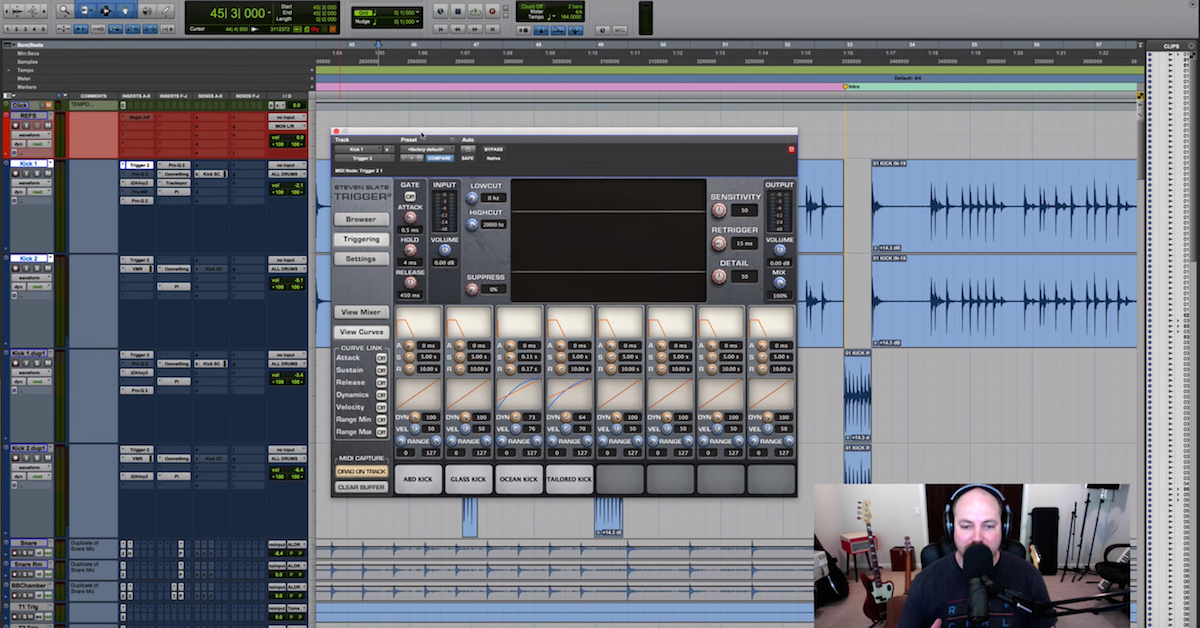5 Tips for Getting a Job in the Audio Industry
Article Content
Chances are, if you’re reading this, you are at least a hobbyist when it comes to audio production. You are also probably aware that this is an industry saturated with talent and is therefore difficult to obtain even an entry-level position within.
As an educator, I’ve seen many students (and even contemporaries) struggle to land and maintain steady, fruitful employment. Here are some pieces of advice if you’re hoping to get that all-important foot in the door.
1. Today’s Connection May Be Tomorrow’s Job
You’ve probably heard “it’s who you know” so many times that you’ve become numb to the message, but it’s absolutely true.
Almost every single job (and most one-off gigs) that I’ve worked are a result of knowing someone at the business that could vouch for my character and ability, therefore putting me at an advantage over other applicants. A contributing factor to why many people decide to attend college to study audio, music, or most other creative trades, is the connections that those schools will offer you.
If college is not a financial or logistic possibility, there are still plenty of ways to make meaningful connections to those who may one day help you obtain employment. Attend trade shows, local art and music events, and make regular (and constructive) posts and comments on the many Facebook, Twitter, and other audio-related social media platform pages.
Be friendly, be cool, and don’t take a single person for granted — they may be able to help you one day.
2. Things Move Quickly in the Professional World, Be Ready
I’ve found that when a studio or business is hiring, it’s best to drop everything, focus 100% percent on reaching out to who you need to and be fully prepared with the correct assets that you’ll need to apply for the job (more on those in the next point).
Maybe the position has been open for weeks, or even months, by the time you’ve heard about it. In that case, they may already have a handful of applicants they’re already considering. If the opportunity has just opened up, it’s best to show that you’re proactive and hungry. I can’t think of a single business that wants an unmotivated staff. Show that you’re motivated by jumping on opportunities as quickly as you possibly can.
Treat every job opening as if it’s one of those cartoon bombs with the long burning wick — when the flame reaches the end, your time is up.
3. Master the Resume and Cover Letter
Perhaps the two most important documents that need to be submitted before the job-bomb goes off are the cover letter and resume.
Here’s some brief advice on crafting the best possible documents:
Tailor these to the position. If you’re applying at a studio that does post-production audio for film and television, you probably shouldn’t talk about how you’ve liked music since you were a child in your cover letter. Highlight your skills and qualifications that will help them.
Do research on the place you’re applying at. In your cover letter, perhaps throw in a casual compliment about how you’d be honored to work for a business with such a great clientele. Show that you already care about helping the people you want to work for by knowing what they actually do.
No typos. An acquaintance of mine who works at a well-known Pro Audio company says that she receives dozens of resumes per week. She reads the resumes one-by-one, and if she finds a single grammatical error, that resume goes in the trash. If you don’t have the attention to detail to complete a one page resume free of errors, you don’t have the attention to detail to make it at the company.
Formatting and delivery. For the resume, pick two fonts that complement each other, and create a one to two page maximum resume that flows well, is easy on the eyes, and highlights your skills. Your name should be appropriately larger than most everything else, and use bold fonts for the headers of the different sections, such as prior work experience, education, etc.
Export it as a .PDF and save it as “YourName_Resume”. Attach the .PDF. The cover letter will generally be the body of the email and not a separate attachment unless the company or business specifies that it should be.
4. Keep an Open Mind and Be Flexible
I’ve seen a lot of young mix engineers turn down work because they prefer working on a specific type of music, and the opportunity was to mix a different style. Don’t make the mistake of being closed-minded. You’re not only turning down money, but you’re preventing yourself from developing your skill set.
I’d venture to say that even if you want to be a mix engineer or producer specifically, be open to literally any other audio-related job opportunity that comes your way. Nobody starts at the top doing exactly what they want to do.
In terms of where you want to work, keep an open mind there, too. In a perhaps ill-advised move, I took a job over 900 miles away from my college just before graduating. When another opportunity that I really wanted came up, it was another 2000 miles away. It didn’t matter — I jumped on it. It was the learning experience of a lifetime and changed the course of my career for the better.
While large cities are generally better for obtaining work in creative fields, they’re also more expensive to live in. With a lot of clients willing to work remotely, it’s possible to get a steady stream of gigs regardless of your location. For those interested in working at businesses or studios with a pre-existing client base, opting to live in a major city will be your best option.
5. Save Everything You Ever Work On and Feature Your Best Work on a Website
Just for the sake of documentation, years from now, I’ll be able to listen back and nostalgically cringe at my progress. I save absolutely everything that I work on.
Before I had a website, potential clients or employers would ask for examples of my work, to which I would send them any relevant files. Years ago, I decided to build my own website that features my favorite examples of my work. It’s much easier than sending files, contains more information, and is hopefully more impressive. There are plenty of great services for building a site for cheap or even free, and while you’d be well-suited choosing from any of them, I stand by my decision to use wix.com.





